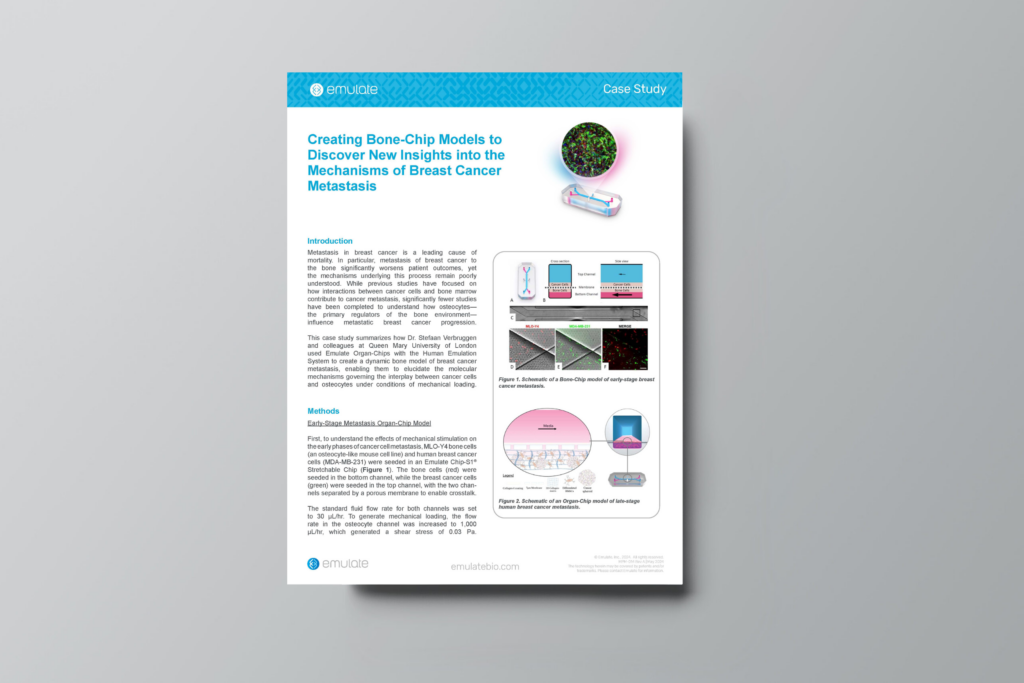Metastasis in breast cancer is a leading cause of mortality. In particular, breast cancer that metastasizes to the bone significantly worsens patient outcomes; however, the mechanisms underlying this process remain poorly understood. While previous studies have focused on how interactions between cancer cells and bone marrow contribute to cancer metastasis, significantly fewer studies have been completed that aim to understand how osteocytes—the primary regulators of the bone environment—influence metastatic breast cancer progression.
This case study summarizes how Dr. Stefaan Verbruggen and colleagues at Queen Mary University of London used Emulate Organ-Chips with the Human Emulation System to create a dynamic bone model of breast cancer metastasis, enabling them to elucidate the molecular mechanisms governing the interplay between cancer cells and osteocytes under conditions of mechanical loading.
In this case study, you will learn how:
- Researchers used Organ-Chips to recapitulate breast cancer metastasis to the bone.
- Mechanical stimulation plays a key role in early- and late-stage breast cancer metastasis.
- Organ-Chips can benefit cancer researchers through enabling tissue co-cultures and the selective application of shear stress in a complex 3D tumor microenvironment.

